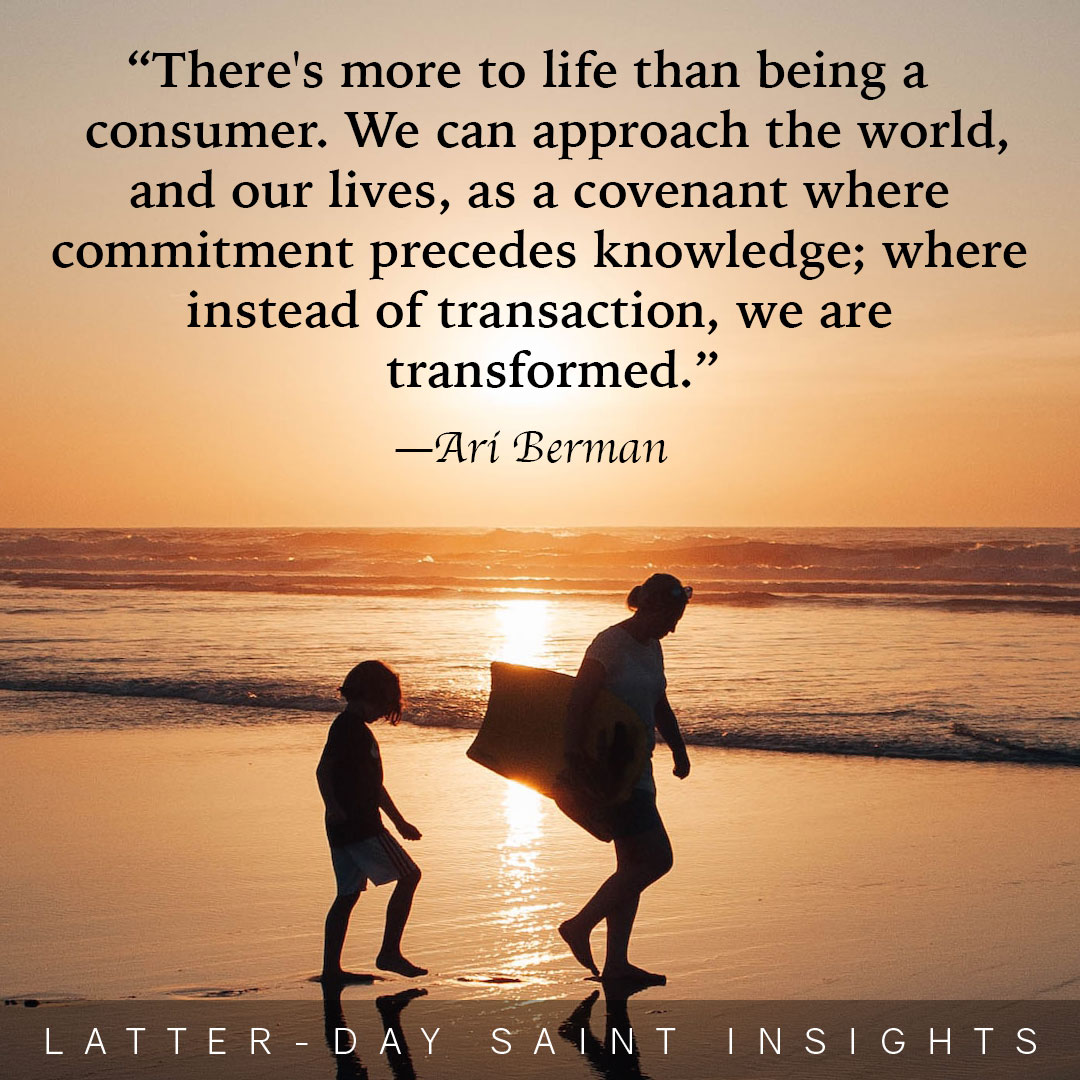In the midst of a world that grows only more consumer-focused, peace of mind can be found by looking through an eternal perspective.

Photo by Tim Hüfner
There’s a parking lot near my apartment complex that is currently installing electric vehicle charging stations. The other day, I noticed that all the charging stations are equipped with vertical TV screens that display a carousel of advertisements. I was none too pleased to see this. I find myself exhausted by the volume of ads I see in the modern day. It feels like everywhere I turn, I’m being sold on something different. The focus gets placed on money, not on people, which can create a very isolating and alienating experience—one where profits come before relationships and where genuine connection is scarce.
In a BYU forum address titled “Covenant versus Consumer Education,” Ari Berman, president of Yeshiva University, shares his thoughts on our “egocentric culture in which one is constantly reminded by product placements and commercialism of all that one does not have, instead of being thankful for what one does have.” Being bombarded by these reminders can disconnect us from the parts of life that carry lasting meaning, such as our families and other relationships. Envy and greed grow alongside the constant pursuit of newer, bigger, better things.
President Berman identifies a paradigm shift toward God’s covenant with his children that combats the pressure of consumerism: “The consumer focuses on the ‘I’ and what’s missing from life, creating a mechanism for fundamental unhappiness, while the Covenant is focused on the ‘we,’ guiding one to contemplate their life in a broader sense of memory and purpose.” Fostering a sense of community among our social circles nurtures the part of us that was divinely designed to belong to something bigger than ourselves. When we look outward at the loved ones we’re surrounded by, we’re less inclined to be lonely and to be sucked in by the call of consumerism.
The antidote to the loneliness that consumerism engenders is to regain an eternal perspective on what makes something valuable. As Berman puts it, “There’s more to life than being a consumer. We can approach the world, and our lives, as a covenant where commitment precedes knowledge; where instead of transaction, we are transformed.”
Watch President Ari Berman’s full address “Covenant versus Consumer Education” to learn more about covenants in a consumer world.
Source: BYU Speeches
—MJ Christensen, Latter-day Saint Insights
FEATURE IMAGE BY ANTHONY ROSSETT
Find more insights
Read more about how a consumer mindset can be detrimental to our community relationships in Lawrence C. Walter’s speech “Citizenship.”



This is probably the type of message we need now more than ever. Thanks for your thoughts on this.